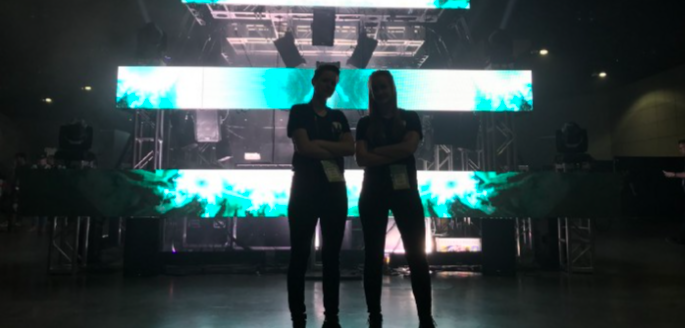
Haiden McGill is a creative technologist and audio engineer exploring techno-progressivism through the intersection of data-driven installations, physical interaction design, and psychoacoustics.
In 2017, They co-founded Noctvrnal, an interdisciplinary XR studio that has collaborated and exhibited with CultureHub LA (2020), ARS Electronica Sound Campus (2020), MIT Media Lab (2019), LA Philharmonic (2019), AT&T Innovation Lab (2019), AFI Conservatory (2019), Oculus Connect (2019), Games for Change (2019), Wing Luke Museum (2018), Wallace Annenberg Center for Performing Arts (2018), USC Jaunt Lab (2018), and others. Recent awards include an arts residency with On Air Fest (2020).
McGill has designed and taught university courses in immersive technology and spatial audio for Chapman University and Orange Coast College. Additionally, they have lectured at CalArts, USC, and CSULA.
What are some pivots you made during your career journey that led you to be a XR Product Manager?
I began working in the VR industry as a spatial audio engineer, pulling from my background in traditional film and shortform content. At first, I was primarily mixing 360 live action productions, but the industry quickly shifted towards dynamic, interactive content hosted within game engines like Unity and Unreal. This meant pivoting to object-based audio, and allowed me to become more heavily involved with developers and experience designers. From there, I took the plunge and became a full-time product manager for Embodied Labs, a VR training company focused on immersive healthcare training for enterprise applications.
What are some of your favorite work pieces that you have created and why?
My favorite project to date has been DreamFreq, a program that reads a live feed of a user’s brainwaves and translates the electric activity into audio. Using this technology, individuals’ delta brainwaves were synthesized to create a live, spatialized musical composition. Volunteers were outfitted with a Muse EEG headband, a piece of wearable tech that is designed to interpret the electric activity sent out by one’s brain. The brainwave data of the user was then collected and streamed in real time using the Mind Monitor app.
Do you have a specific way you would like people to experience your work?
I personally gravitate towards location-based experiences and experiential entertainment. Virtual reality headsets enable an individual to have an intimate experience, but it makes shared experiences difficult to navigate and less fulfilling than 360 projections in a dome, or an interactive installation where you can witness and feel individuals’ reactions in real time. For that reason, I prefer to exhibit multichannel audio installations with some type of interactive visual component at a site specific location.